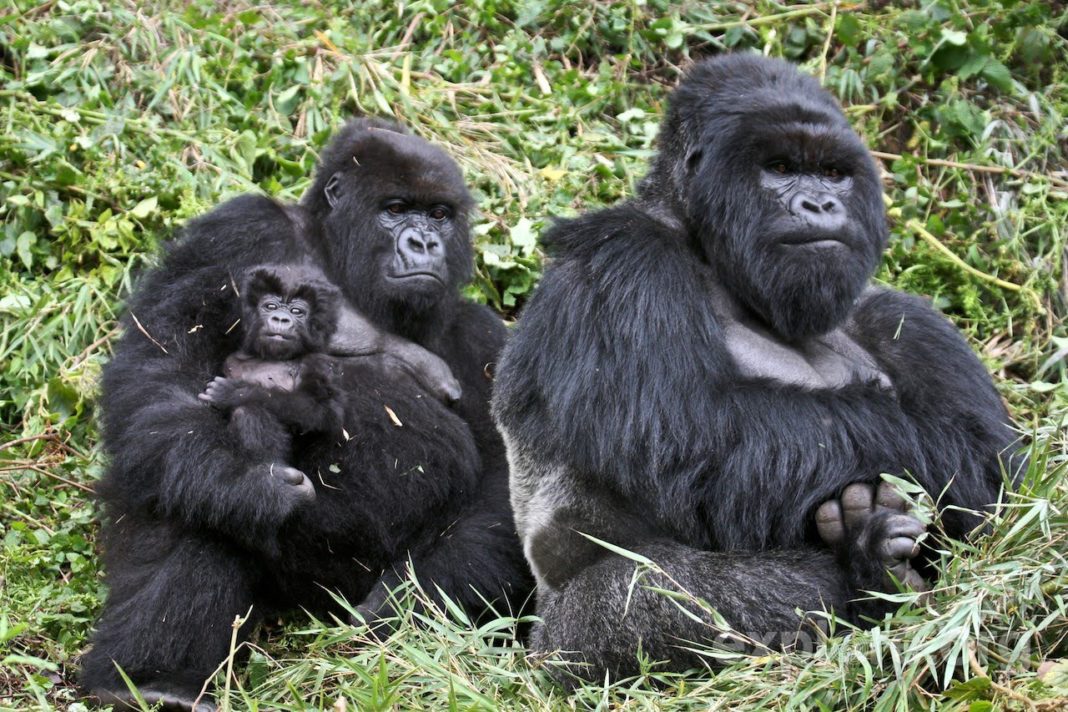The third phase of the Uganda Tourism Board (UTB) domestic tourism campaign has ended amidst promising sector recovery, especially in the Hospitality Sector.
Take on the Pearl with Love, was launched in February 2021, to celebrate and encourage couples and families to ‘escape the Covid-19 fatigue’ and rekindle their relationship by exploring Uganda, The Pearl of Africa. Worldwide, the month of February is celebrated as the month of love.
The campaign is part of the larger; Take on the Pearl domestic tourism drive, launched in September 2020 by UTB, the Government of Uganda tourism marketing and recovery agency, to kick start the tourism sector, that was reawakening from nearly six months of a Covid-19 induced shutdown.
The campaign was in December 2020 re-energized with a second phase focusing on mountaineering, led by the UTB Chief Executive Officer, Lilly Ajarova.
She, between 11th and December 18th 2020, led a team of climbers on a 7-day fact-finding and documenting hike to Margherita Peak, Mt. Rwenzori’s highest point measuring 5,109 metres (16,762 ft)) tall.
Some of the climbers on the team, included, celebrity, entertainer, champion kickboxer and actor, Moses Golola, and Joshua Cheptegei – the 5,000m world record holder and Commonwealth gold medallist, who did a part hike. The climbing team also included professional photographers for documenting the Rwenzoris as well as other Ugandan ardent nature lovers.
Take on the Pearl is being executed with support from the United Nations Development Programme (UNDP) Uganda Country Office.
Take on the Pearl with Love, which specifically focused on families, saw, one Raymond Okidi enjoy a fully paid trip to Ssese island with his wife, two daughters and three sisters. They were flagged off on 5thMarch, 2021 from the Uganda Tourism Board offices amidst excitement and jubilations. The family was booked into Brovad Sands Hotel, Kalangala for a 3-day Easter weekend holiday.
“I cannot believe I’m on a ferry, this is my and my family’s first time to travel on water. Thanks to the Uganda Tourism Board, we can do this. I will never forget this experience,” said Okidi while on a Ferry crossing to Kalangala from Masaka.
On the second day of the trip, the family took a guided nature forest walk by Gerald Mugisha, a renowned forest guide in Kalangala. The forest which sits on about 100 acres of land also harbors the home for the legendary 19th Century explorers, John Speke who discovered the Source of the Nile in Jinja.
“This is fascinating to see the actual walls of John Speke’s house after all these years that have passed. This is an experience to always remember, Ugandans should endeavour to come and see such historical marks that exist in our beautiful country,” said MrsOkidi.
From the Forest, the Family took a walk through the Ssese Wildlife Zoo that was guided by the Zoo Manager Mr Kalenzi Rodrique. The day was concluded by a boat cruise to the Virgin Island where the family enjoyed the beautiful scenery of the island and water.
The last day of the trip was a self-care experience that involved Sauna, Steam, Swimming, relaxing on the beach and kids’ entertainment. The Family had their Easter lunch accompanied by a live band for soothing music. Later, to wind up the day, the family was treated to a floating dinner and experience.
“When I was told about having a floating dinner, I did not understand what exactly it was. This is the highlight of the trip, the best way to end it. Again, thank you Uganda Tourism board for choosing my family and taking us on an adventure of a lifetime. We shall never forget this as long as we live,”Okidisaid.
Claire Mugabi, the Marketing Manager of Uganda Tourism Board applauded Ugandans and the private sector players who had participated in the various domestic tourism drives under the Take on the Pearl campaign and said that the resilience exhibited by the private sector and the travelling public, with support from the government was beginning to pay off.
“Statistics released by the Policy Research and Planning Division of the Ministry of Tourism, Wildlife and Antiquities (MTWA), show that although annual bed occupancy and room occupancy, as of December 2020 remained depressed- at 20.1% and 19.8% respectively, compared to 51.95% and 45.8% in 2019, monthly analysis showed that there had been great improvement from May 2020, when the industry rates nearly ground to a halt,” she said.
Room occupancy is the percentage of available accommodation rooms that are occupied across a certain period, while bed space occupancy is the percentage of bed spaces that are occupied over a certain period. The two are important measures of profitability. Estimates from the Uganda Hotel Owners Association and the ministry say, for an average hotel to break even, it needs 40% occupancy levels.
“I am glad the travelling public, especially the Ugandans, responded to our calls to travel and experience their country. I would also like to specially appreciate our private sector who opened their doors and revised their rates to allow Ugandans to experience their country. If there is anyone who doubted the viability of domestic tourism as a segment of our tourism industry, this is proof that for the right pricing, domestic tourism is a strong complement to the foreign arrivals, which remain the mainstay of the industry for the foreseeable future,” she said.
Consequently, in April room and bed space occupancy crushed to 2% and 1.8% respectively. In May 2020 the industry virtually came to a halt, with room occupancy sinking to probably an all-time low of 1.4% and bedspace occupancy flowing at 1.3%.
Following the lifting of some restrictions, at the beginning of June the Ministry of Tourism Wildlife and Antiquities (MTWA) and the Uganda Tourism Board, through the post-COVID-19 recovery task force committee on Quality Assurance, on 5th June launched the Standard Operating Procedures to guide the hospitality industry in preparation for the reopening of normal businesses operations.
The government towards the end of June, further relaxed restrictions on public transport stimulating a minor growth to 4.1% in room occupancy and 4% in bedspace occupancy. Subsequent relaxing of Covid-19 restrictions especially the opening of Entebbe international airport and land borders for tourists provided they tested negative 72 hours before arrival in Uganda. This saw room occupancy and bed space occupancy grow further to 23.3% and 22.7% by September 2020.
Regardless of the relaxed restrictions, the public was still afraid to travel and there was information asymmetry on if and when to travel and which parts of the country were open to travel as some of the border districts remained closed.
That’s why in mid-September 2020, UTB launched a campaign dubbed ‘Take On The Pearl’ aimed at jump-starting the country’s tourism, with a key focus on the domestic market, by showcasing some of the country’s prized tourist attractions, especially those upcountry.
The campaign aimed to “both create awareness and also educate Ugandans on the various tourist spots around the country; with emphasis on What? When? How? Who? And Where to Travel” according to Lilly Ajarova the UTB CEO.
The campaign was built on the strength of word-of-mouth recommendations from friends and family as a major influencer for domestic travel. It rewarded travellers who shared their travel experiences on social media. It also leveraged the mass following of celebrity influencers online to both motivate travelling but also deflate the stigma and anxiety around travelling during a pandemic. The campaign also sought to create awareness about travel safety, provided one practiced the SOPs.
According to the MTWA’s Uganda’s Tourist Expenditure and Motivation Survey (Tems) 2019 Report61% of Ugandans relied on friends and relatives for travel information and destinations.
Thanks to these initiatives, statistics showed by November 2020 room occupancy reached 26.5%, declining slightly to 24.8% in December. However, bed space occupancy remained on an upward trend, reaching 25.7% in November and a 6-month high of 26.7% in December 2020.








